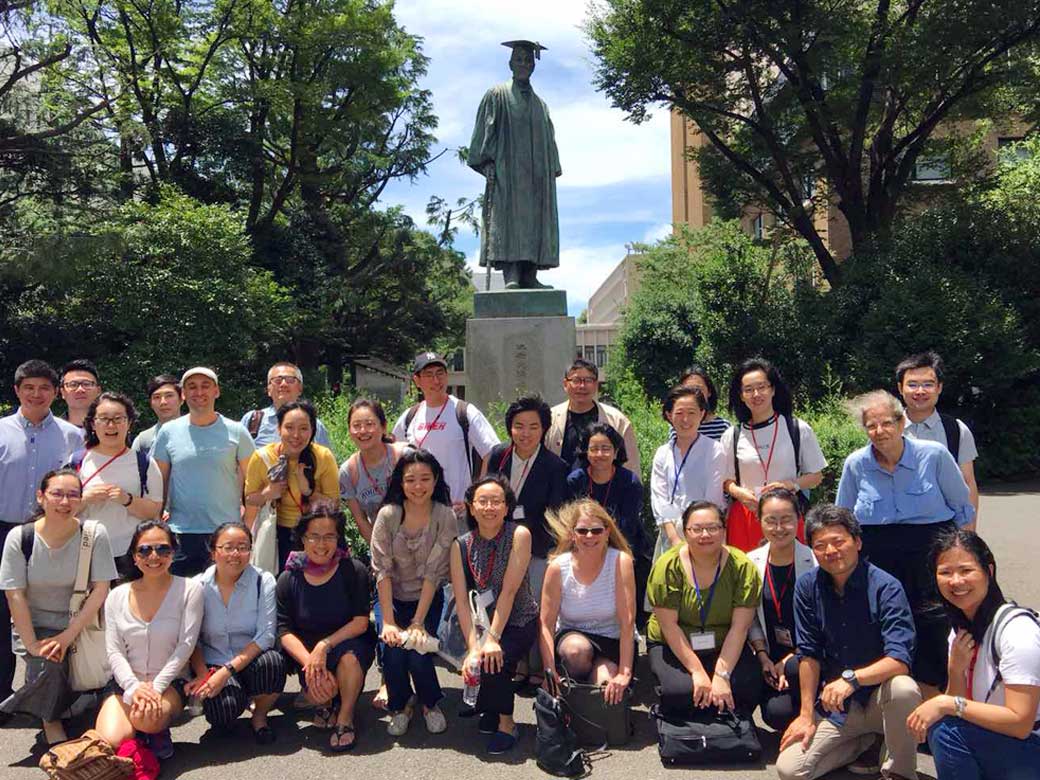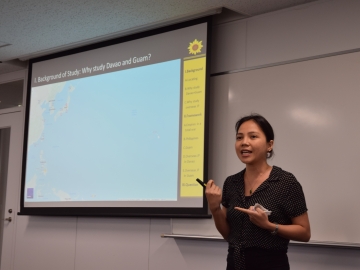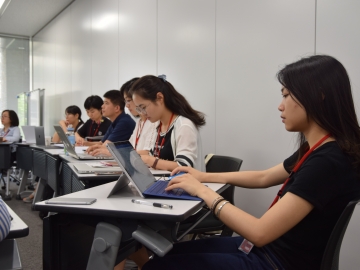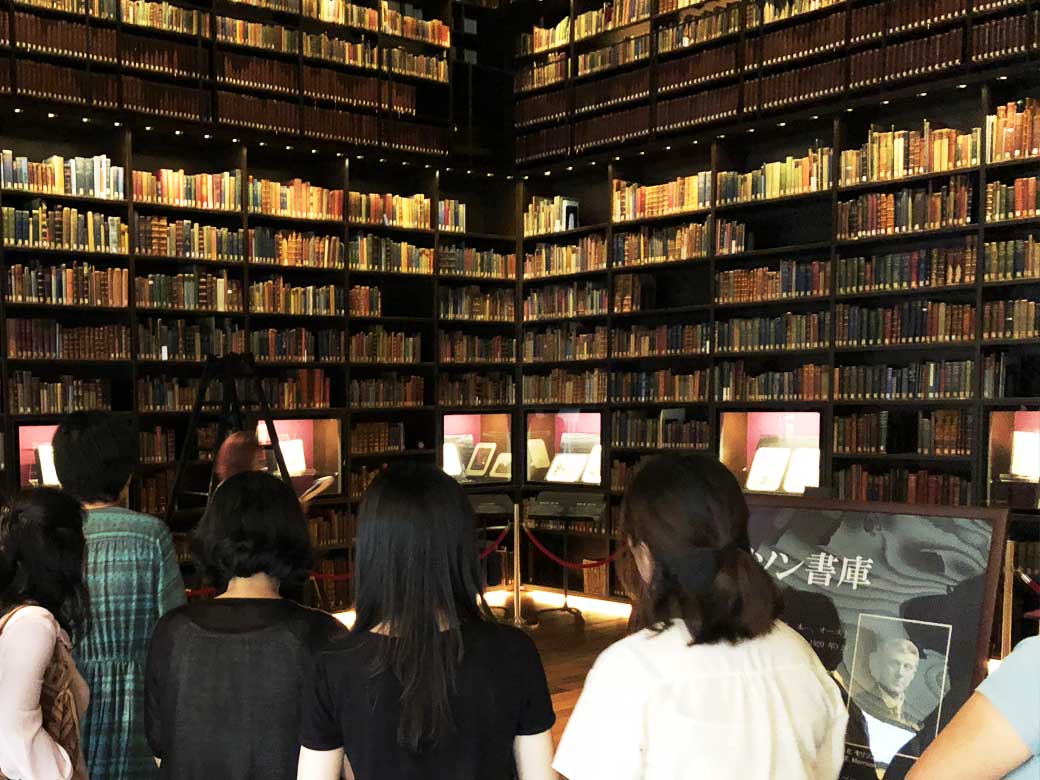Harvard-Yenching Institute Advanced Training Program at Waseda, held for the first time ever in Japan
Wed, Sep 5, 2018-
Tags
Incubator for future leaders in historical and contemporary studies of the Asia-Pacific region

Participants and instructors of the program
“It was like the first day of class, with all the fears, hopes, and excitement first-days entail,” reflects Maria Cynthia Barriga, better known as “Jaja” to friends, on her experience in the Advanced Training Program on New Approaches in Asia-Pacific Historical and Contemporary Studies held at Waseda University from June 25 to July 5.
“After the one-hour classroom orientation was a dinner reception, which helped break the ice among us trainees and instructors. They were incredibly friendly and nice. When discussions began, I found that they were also highly opinionated. Because we have different views and ways of approaching things, it was not always easy, but we affirmed our similarities and learned from our differences. In the end, each of our perspectives was expanded and our research projects deepened. This was what I liked best about the program, that we were all so vocal.”
About the program

Maria Cynthia Barriga, Ph.D. student at the Graduate School of Asia-Pacific Studies
The Harvard-Yenching Institute advanced training programs bring together a group of promising young scholars in the humanities and social sciences with a focus on Asia like Barriga, who is currently a Ph.D. student at the Graduate School of Asia-Pacific Studies conducting research on overseas Japanese in the periphery of prewar American and wartime Japanese empires, so that they have an opportunity to engage in discussions with leading scholars in the field concerning their work. The programs are held in Cambridge, Massachusetts and various locations throughout Asia. This particular one-time program at Waseda, co-organized by the Global Asia Research Center and the Harvard-Yenching Institute, focused on various fields of Asia-Pacific history/contemporary studies and was the first to ever be held in Japan.
“Because we come from different backgrounds, every lecture, discussion and chat-over-obento offered something new and fascinating. It made the group dynamic,” Barriga adds. “This was not just the trainees. The professors and staff also joined the discussion. It was an exhilarating and memorable program.”
Toru Shinoda, program manager and dean of the Center for International Education, says, “I hope this program pushed forward globalization at Waseda, where I envision people from all over the world coming here to study together. I also wanted people to know that exciting things are happening here at Waseda, even in the summertime.”
Diversity among trainees

Diverse group of 20 trainees
Through a highly-selective application process, a total of 20 trainees who are advanced graduate students and recent PhDs were invited to the Waseda campus. They were diverse in a number of ways, whether it was their countries of origin, affiliated universities, fields of studies, and disciplines, including a Waseda graduate student focusing on the features of nationalism in Japan under unequal treaties and India under British colonialism to understand how nationalism manifested itself in both regions; a PhD candidate from Seoul National University who is studying the interactions between the United States and Asian Communist countries in the late 1970s and early 1980s, focusing on China, North Korea, and Vietnam; and a PhD candidate from the Chinese University of Hong Kong who studies the Canton enamel porcelain in the American market.
“Having such diversity may have had an effect on the way inquiries were made and how discussions were done,” comments Andrew Gordon, program chair and Lee & Juliet Folger Fund professor of history at Harvard University. “Hopefully, this program did not simply propel trainees in a linear way forward on their projects but rather shook them up and unsettled them, creatively.”
Over the course of the program, the trainees spent time in smaller groups with similar intellectual interest, and engaged in discussions with their peers and the program faculty, which included leading scholars such as Professors David Armitage of Harvard University, Eiichiro Azuma of the University of Pennsylvania, and Timothy Brook of the University of British Columbia. Each group worked toward organizing their discussions into a working paper.

Field trip to the Toyo Bunko (The Oriental Library)
new beginning of an academic network and international friendship
In terms of her own research, Barriga says the training helped frame her research ideas. Her plan now is to continue working on her sources on the Philippines, Guam, overseas Japanese, and Asia-Pacific War with a clearer framework. “The discussions in the training also problematized the concept of ‘empire,’ something which I took as a given. I want to explore that concept more and see how it operates in the Pacific Islands.” In the future, she intends to carry out projects and classes which revolve around indigenous peoples, ethnic minorities, nation-state-building, and imperialism.
The program concluded with the following words from Naoyuki Umemori, Associate Dean of the International Affairs Division and Professor of the Faculty of Political Science and Economics. “This program is not the end but only a new beginning of an academic network and international friendship. We believe this program will have served as an incubator for the trainees to become leaders in historical and contemporary studies of the Asia-Pacific region in the future.”













